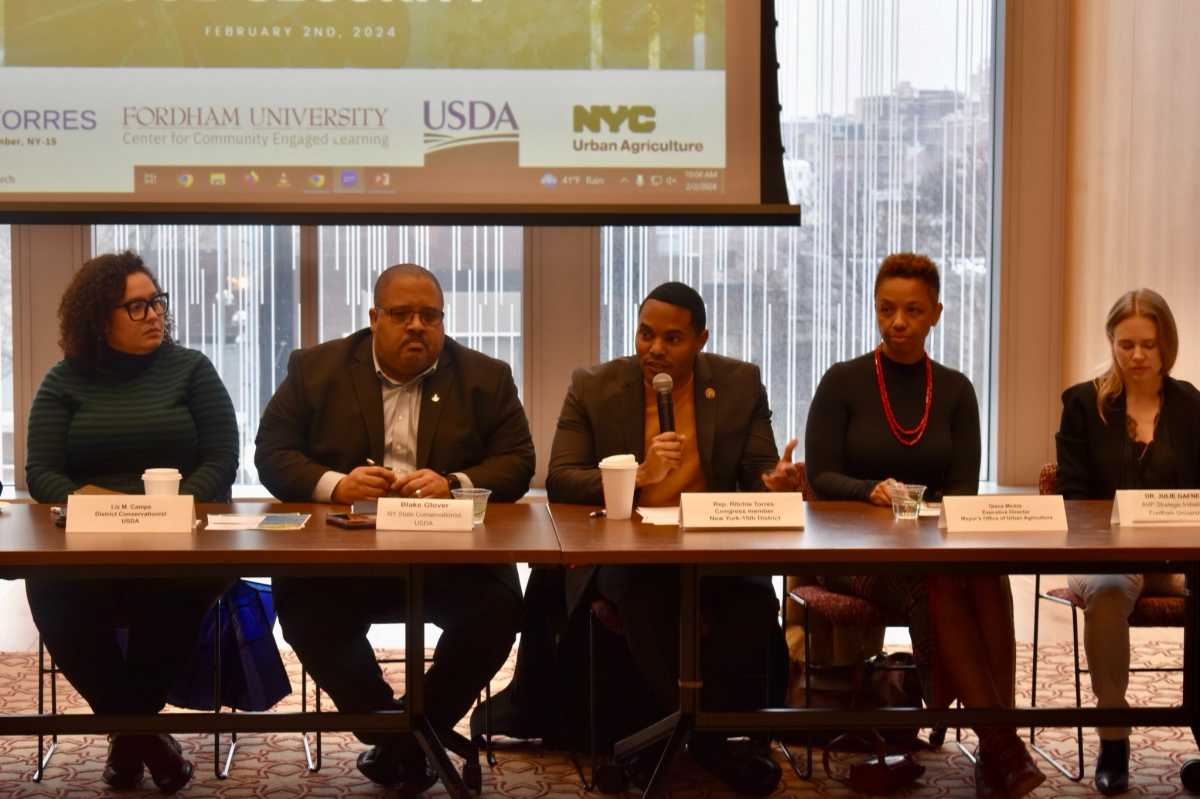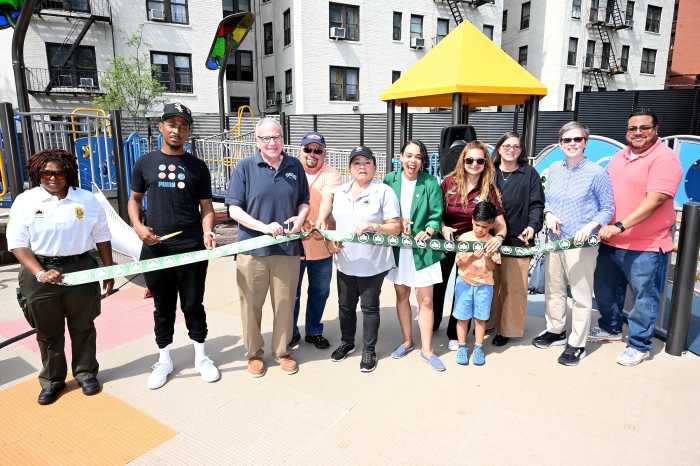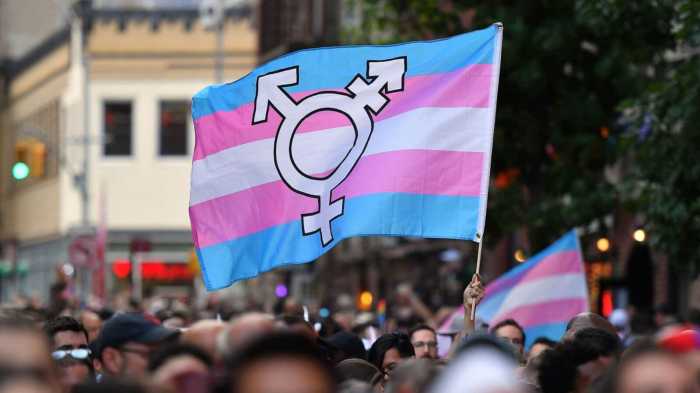U.S. Rep. Ritchie Torres partnered with Fordham University on Friday, Feb. 2, to bring officials together on an issue that sounds far removed from the Bronx: agriculture.
“People think about [the U.S. Department of Agriculture] as a rural agency,” Torres said at the event — but it trickles down to food supply in the Bronx, which in turn impacts public health outcomes.
At the roundtable discussion, Torres said that despite the tradition of community gardens and other forms of urban agriculture in the borough, 36% of adults consume no fruits or vegetables each day, and many live far from supermarkets where fresh produce is available.
Factors such as these have given the Bronx some of the country’s poorest health outcomes — especially in the district Torres represents.
His district includes several west and south Bronx neighborhoods such as Fordham (including the University, a Jesuit institution), Mott Haven, Riverdale and Woodlawn. According to federal data, the median household income of CD-15 is $34,391, and 47% of households participate in the SNAP (Supplemental Nutrition Assistance Program) — much higher than the statewide 15 percent.
While the data showed a slight decrease of 1.3% since 2013 in the proportion of households in CD-15 receiving SNAP benefits, Torres’ district holds by far the highest percentage.
People in that district struggling to afford nutritious food are not alone in the borough; overall, the Bronx is disproportionately affected by food insecurity — and poor health outcomes that result from it.
A recent state report found that 39% of Bronx adults self-reported that they were “always, sometimes or usually worried or stressed about having enough money to buy nutritious meals in the past 12 months” — the highest of any county.
Fordham University is one institution looking to change that. The university recently received a $50M grant from the Environmental Protection Agency (EPA), designating it a grantmaker to partner with local organizations on a variety of environmental and public health projects, large and small.
“We are deeply committed to partnering on environmental justice work with community-based organizations to lead the way in sustainable food systems and to support food security in the Bronx,” said Julie L. Gafney, who represented Fordham as the assistant vice president of Strategic Mission Initiatives and executive director of The Center for Community Engaged Learning, in a statement following the roundtable.
At the Feb. 2 discussion, which included officials from the U.S. Department of Agriculture and the Mayor’s Office of Urban Agriculture, Torres emphasized that public health depends on structural change, not just individual actions.
“It’s certainly true that we make personal choices [regarding health], but the choices that we make are constrained by the conditions in which we live,” he said. “Social determinants of health cannot and should not be ignored.”
Reach Emily Swanson at eswanson@schnepsmedia.com or (646) 717-0015. For more coverage, follow us on Twitter, Facebook and Instagram @bronxtimes

























